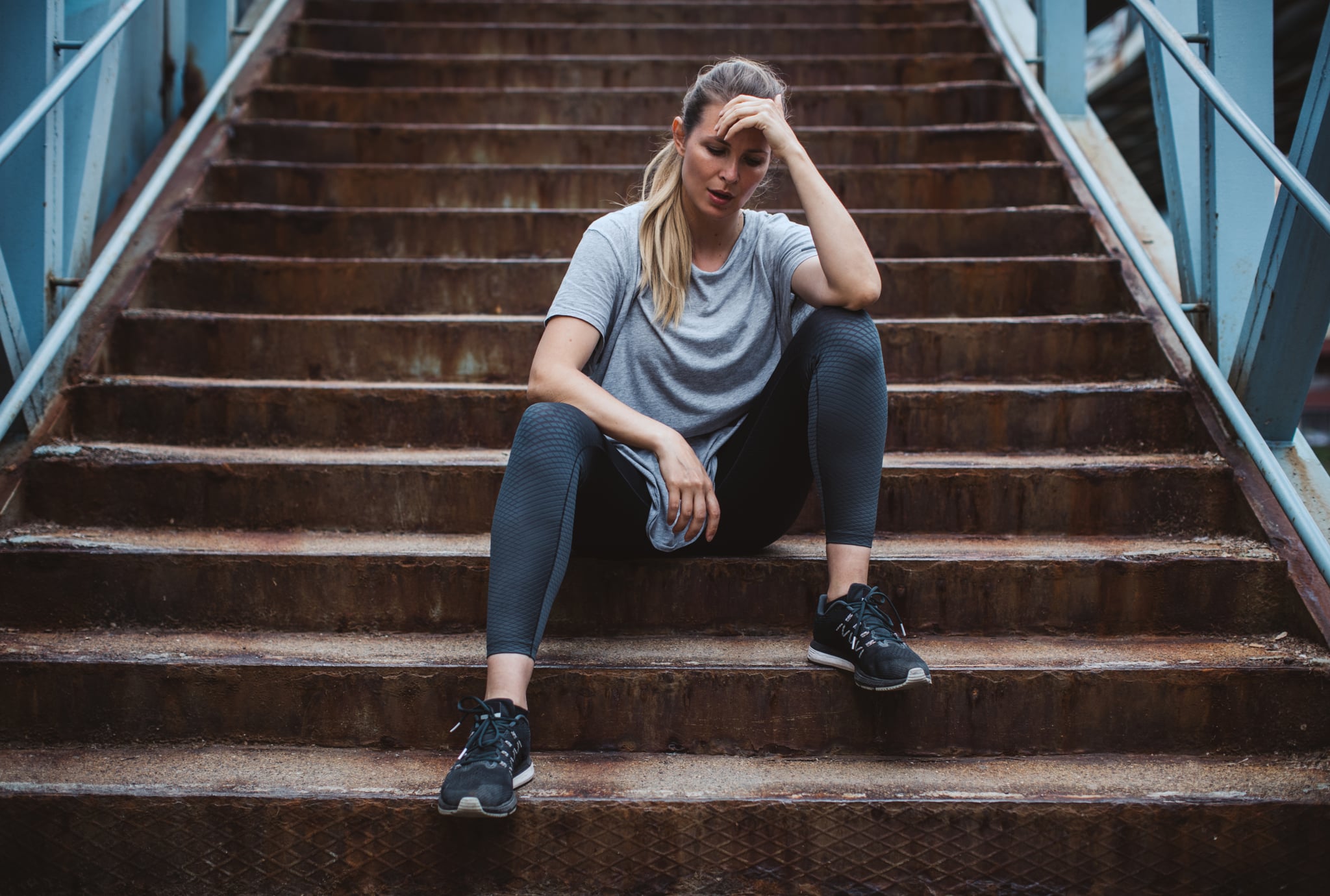

Sleep and fitness are intimately related. Not just because it's so hard to get up for your morning workout if you've slept poorly the night before - although that definitely doesn't help - but also for biological reasons. When you sleep, your body releases natural growth hormones that improve your fat burn, build stronger bones, and help your muscles grow and recover, according to past studies (which is key if you're trying to lose weight). But even knowing this, it's easy to fall into the trap of skipping out on sleep to squeeze in your workouts; we've definitely done it over here. That's why we wanted to know, once and for all, what exactly happens when you exercise on a less-than-full night of sleep? And why is it so bad?
It comes down to your REM sleep, said Kin Yuen, MD, a sleep medicine doctor at the UCSF Sleep Disorders Center. You might know REM, which stands for "rapid eye movement," as the stage of sleep when you do your dreaming. It's also the time when your brain files away all the information you picked up that day, recovers, and gets ready for tomorrow.
What does that have to do with workouts? "Whether you're an athlete, a musician, or a scientist, we know that reasoning, judgment, and coordination all improve when we have enough REM sleep," Dr. Yuen told POPSUGAR. Those skills become clouded when you're deprived of REM sleep, which can have a major impact on your workout the next day. Not only will you underperform - maybe you'll finish fewer reps or have to drop to lower weights - but your degraded coordination can also result in poor form, which can lead to injury and majorly impact your results, be that building muscle or losing weight.
And it's not only about sleep, Dr. Yuen said, but when and how you wake up. "The longest cycle REM sleep is typically right before we get up," she said. "That's why we hate the snooze button." Your alarm pulls you out of your REM cycle, and when you hit snooze, your brain sends you back into it. The problem is that the precious few minutes of sleep you grab from the snooze button aren't nearly enough to complete a full REM cycle. You'll wake up midcycle, which throws your body off completely and actually leaves you more tired and groggy than before.
"It's really important to complete the cycling of the deep sleep and REM sleep so we reap the benefit," said Dr. Yuen. That means both resisting the temptation of the snooze button but also getting enough sleep that you can complete your REM cycle. How much sleep is that exactly? Dr. Yuen says there's no set number that applies to every person, but in general, women should try to get about eight hours, while men typically need seven or seven and a half.
The amount of sleep you need is dependent on you, though; you might feel better with more or less than the recommended amount. It's a matter of listening to your body and paying attention to when you go to bed and wake up on the mornings you feel the best (or the worst). If you're trying to lose weight in particular, here's exactly how much sleep you should aim to get per night.
If it comes down to choosing between a workout and getting enough sleep, Dr. Yuen recommends skipping the workout. The rest of your day is going to feel a lot better if you prioritize your shut-eye. Tomorrow, try heading to bed an hour earlier so you can do both. (Easier said than done, but we'll try if you do.)



0 comments :
Post a Comment